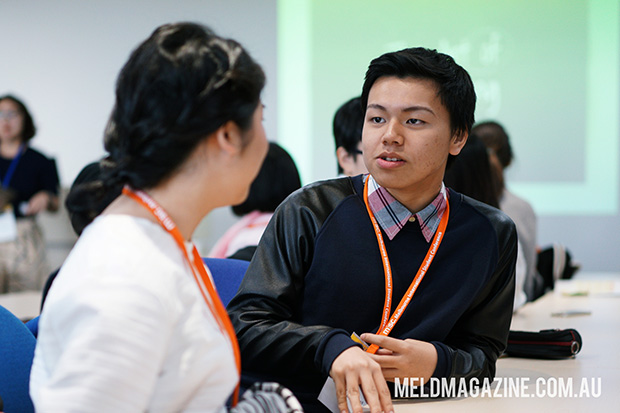5 tips on how you can communicate effectively
As an international student, I personally believe communication is one of the most important skills that everyone should put their effort towards, especially for those who are not native English speakers. When I started my Australian journey about ten years ago, I found things were quite difficult without effective communication skills; I was unsure on how to raise an opinion in study groups, had no confidence to get through a job interview and so on.
Effective communication skills are fundamental to success in many aspects of life. It’s a two way-process that doesn’t isn’t just about how you convey a message; it’s also about how you listen to gain the full meaning of what’s being said and make sure those communicating are understood.
Many jobs require strong communication skills, and statistics show people with good communication skills not only have better relationships with friends and family, but also have a better chance to succeed in their career. Research from Graduate Careers Australia showed the most crucial selection criteria when recruiting graduates came down to communication with 48.6 per cent of employers agreeing on its importance.

Source: Graduate Outlook 2014 – Employers’ Perspectives on Graduate Recruitment in Australia, Graduate Careers Australia
So what can you do to build upon the foundations of being an effective communicator? Here are five quick tips for you to consider:
1. Know your audience
Communication is not about what you said, it is about what your audience think you said. In other words, it is the response you get from your audience and it is crucial to know your audience. You can start by researching their needs, finding out how many they know about the topic and observe what their goals are in the conservation.
2. Be a good listener
In communication, do not focus on what you are going to say next. Instead, pay more attention on what you are getting from them. This is learn-to-listen — it shows people that you are interested in what they say and you are fully engaged and in the moment with them. It also helps if you ask questions when you don’t quite understand what is being communicated.
3. Utilise body language
When you are short of words to express what you want to say, relying on body language can be great. So much of how we communicate is conducted in how we present ourselves physically, not just in the words we say. Body language includes how we posture ourselves, our level eye contact, gestures with hands and arms, and tone of voice.
4. Be assertive
Effective communication is always about understanding the other person, not about winning an argument or forcing your opinions on others. Having your message direct and assertive makes for clear communication and can help bridge the gap. Being assertive requires you to express your ideas, feelings and needs in an open and honest way.
5. Be visible
Nowadays, hiding behind a computer or a mobile phone to get your message across is what most people feel comfortable doing. Let’s be mindful that face-to-face communication cannot be replaced and can help others establish trust more quickly. Sometimes, you just need to drop your devices and go out there to create a meaningful connection in person.
Overall, effective communication is the glue that helps you deepen your connections with others, as well as improve relationships and the work you do in a team. It can also enable you to communicate negative messages without creating conflict. Of course, developing these skills take time and effort but the more practice you put in, the more effective you will eventually become as a communicator.
Silva Wei is a former international student from China, and the co-founder of Peer Camp, a community of professionals providing networking, career guidance and employability skills development.
